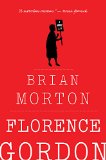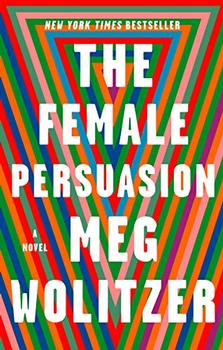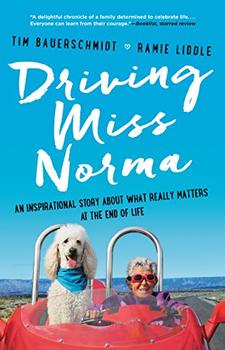Summary | Excerpt | Reading Guide | Discuss | Reviews | Beyond the book | Read-Alikes | Genres & Themes | Author Bio

A wise and entertaining novel about a woman who has lived life on her own terms for seventy-five defiant and determined years, only to find herself suddenly thrust to the center of her family's various catastrophes.
A wise and entertaining novel about a woman who has lived life on her own terms for seventy-five defiant and determined years, only to find herself suddenly thrust to the center of her family's various catastrophes.
Meet Florence Gordon: blunt, brilliant, cantankerous and passionate, feminist icon to young women, invisible and underappreciated by most everyone else. At seventy-five, Florence has earned her right to set down the burdens of family and work and shape her legacy at long last. But just as she is beginning to write her long-deferred memoir, her son Daniel returns to New York from Seattle with his wife and daughter, and they embroil Florence in their dramas, clouding the clarity of her days with the frustrations of middle-age and the confusions of youth. And then there is her left foot, which is starting to drag.
With searing wit, sophisticated intelligence, and a tender respect for humanity in all its flaws, Brian Morton introduces a constellation of unforgettable characters. Chief among them, Florence, who can humble the fools surrounding her with one barbed line, but who eventually finds there are realities even she cannot outsmart.
Florence Gordon is a joy to read for its beautiful and complex depiction of an intelligent, uncompromising woman who defiantly—or courageously—remains steadfast in living a life of her own determination...continued
Full Review
(723 words)
This review is available to non-members for a limited time. For full access,
become a member today.
(Reviewed by Suzanne Reeder).
In the early 20th century several strides were made for the advancement of women, including the right to vote with the passage of the 19th Amendment in 1920. These victories were associated with what is commonly referred to as the first wave of feminism. After World War II, however, feminist causes waned, and by the 1950s the image of the blissful suburban housewife permeated the national consciousness.
Galvanized by the civil rights movement, feminists again took their places on the political stage. By the 1960s a second wave of feminism emerged and continued through the following decade. During this era the women's movement fought for — and won — monumental rights that, among other advancements, improved women's equality in...
This "beyond the book" feature is available to non-members for a limited time. Join today for full access.

If you liked Florence Gordon, try these:

by Meg Wolitzer
Published 2019
An electric, multilayered novel about ambition, power, friendship, and mentorship, and the romantic ideals we all follow deep into adulthood, not just about who we want to be with, but who we want to be

by Tim Bauerschmidt, Ramie Liddle
Published 2018
Infused with this irrepressible nonagenarian's wisdom, courage, and generous spirit, and filled with sixteen pages of color photographs, Driving Miss Norma reminds us that life is beautiful and precious, and that family, fun, and self-discovery can happen at any age.